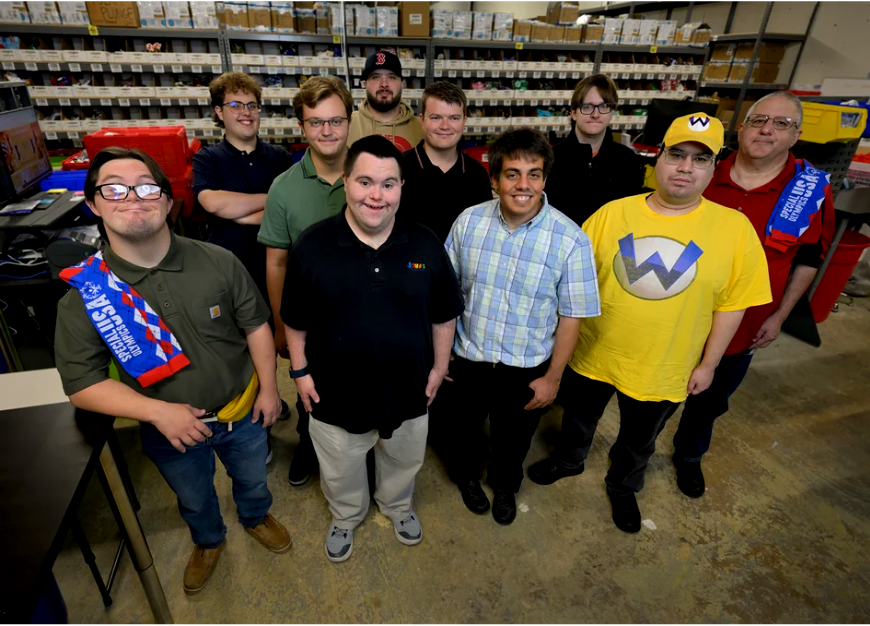Hiring people with differing abilities including those who are neurodivergent is not altruism. It’s good business.
At John’s Crazy Socks and now through Abilities Rising, we’ve seen this firsthand. Diverse teams perform better, build stronger cultures, and unlock talent that’s too often overlooked by traditional hiring pipelines.
The old adage says, “You measure what you value.” If inclusion matters, how do we measure it?
Here are key ways companies are starting to answer that challenge—and what your business can learn from them.
1. Track Representation and Trust
Many companies begin by tracking how many employees self-identify as neurodivergent. It’s not just about numbers. It’s a trust metric.
When people are willing to identify as neurodivergent at work, it means they feel safe being their true selves. It reflects your culture’s openness, not just its headcount.
We spoke at a recent event when TD Bank shared how they monitor this metric to assess psychological safety. They track changes in self-identification from year to year so they can see the impact their programs have. At Dell Technologies, their “True Ability” ERG helped expand voluntary self-ID rates by creating an environment where people felt seen and respected.
2. Go Deeper With Inclusion and Engagement Surveys
It’s common to ask, “Are you engaged at work?” But that’s not enough.
If you want to understand support for a neurodiverse culture, ask:
- “Do you feel understood?”
- “Do you feel supported in your role?”
- “What makes work easier or harder for you?”
Surveys designed with neurodivergent employees, not just for them, generate the most insight.
3. Measure True Impact
Don’t stop at counting how many people join your ERGs or attend workshops. Ask: how are neurodivergent employees faring compared to their peers?
Look at:
- Promotion and advancement rates
- Retention and turnover
- Performance evaluations (if applicable)
Data tells a story. When you see gaps, ask why. Then you can learn what additional changes to make.
4. Track Inclusion Initiatives for Impact
It’s great to have neurodiversity hiring programs or ERGs. But are they doing what they promised?
Ask:
- Are people actively engaging with these programs?
- Have any policies or workplace norms changed because of them?
- How many hires have come directly through neurodiversity-focused initiatives?
EY’s Neurodiversity Centers of Excellence started as a pilot. Today, they help solve complex challenges in cybersecurity and data science across multiple cities. IBM began its neurodiversity program in one country—now it spans eleven.
These aren’t vanity projects. They’re business-critical strategies.
5. Rethink Hiring Practices
Is your recruitment process truly accessible?
At Microsoft, hiring managers asked themselves a simple but powerful question: “Why aren’t we hiring more people on the autism spectrum, especially those with strong technical skills?”
They realized the problem wasn’t the candidates, it was the process. A traditional interview that favors small talk, eye contact, and firm handshakes doesn’t assess coding ability and may create barriers for neurodiverse candidates. Microsoft did not lower their standards, but they changed their process to give them the best possible candidates.
Microsoft’s Neurodiversity Hiring Program uses multi-day, project-based assessments that let candidates showcase their skills in real time. The result? A stronger, more neurodiverse technical workforce.
Leading companies use:
- Skills-based assessments over traditional interviews
- Clear, written expectations
- Flexible formats and timelines
- Alternative internship and onboarding pathways
6. Go Beyond the Numbers by Listening to Stories
Data matters, but so do lived experiences.
Go beyond the data. Give people a voice through focus groups, open forums, and personal check-ins. At John’s Crazy Socks, we often learn more from lunch time conversations than spreadsheets.
When someone shares what made their day easier—or what made it harder—you gain insight no dashboard can provide.
So… How Is Your Company Really Doing?
Not asking the question doesn’t make the issue go away. A one-off initiative with no follow-up may generate a good press release—but it won’t build a better workplace.
A neurodiverse workforce can make your business stronger, smarter, and more resilient. But it takes commitment and consistent action. Keep asking questions. Keep working at it. The payoff is worth the investment.
If you’re ready to move from good intentions to measurable impact, we’re here to help.
📩 Let’s connect: booking@jmspeak.com




